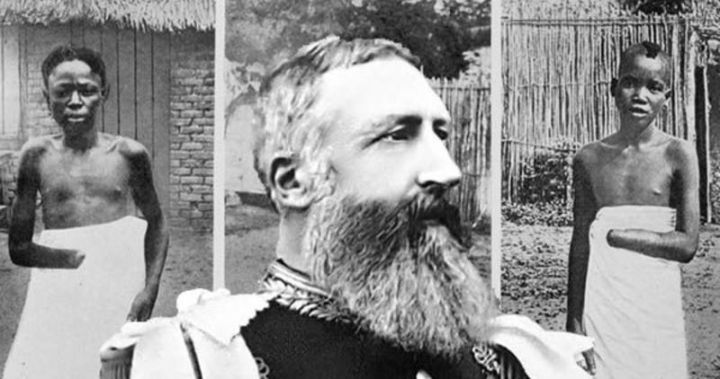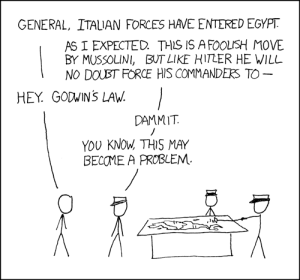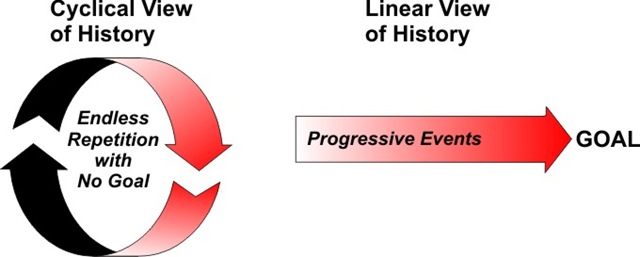“Cutting off hands, Congo is ours!”
These words are sung regularly nowadays by certain young people across Flanders, Belgium. I heard them last year during a sporting event organized by the school I’m working in. The following is an example of a sticker found at my school:

I also heard the racist chant on Congo more recently on a TV news report. Amateur footage showed how a young Belgian-Rwandese woman suffered harassment at a music festival from a group of young men. The men were singing “Handjes kappen, de Congo is van ons” (“Cutting off hands, Congo is ours”). They of course refer to a horrible practice by colonists in former Belgian Congo: colonists sometimes cut the hands of workers who tried to escape oppressive labor conditions. In short, “Handjes kappen, de Congo is van ons” is a very racist song, referring to barbaric aspects of western history and culture.

Apart from plain racist statements, nationalist claims are also a hype. “This is Flemish soil” are words which often come from the very same people who sometimes sing the Congo song, thereby jeopardizing the cause of those Flemish nationalists who want nothing to do with racism. At least at the already mentioned sporting event this was the case. “Handjes kappen, de Congo is van ons” was uttered by students who write “Dit is Vlaamse grond” (“This is Flemish soil”) everywhere they can (on walls and desks, in notebooks, etcetera). It is quite ironic that people who claim to defend “the Flemish cause” associate themselves with a brutal practice of Belgium’s colonial past.
 If the racist song is merely a self-proclaimed (however horribly misguided) “joke”, then the singers are really taking a basic element of a so-called politically correct framework as their moral reference point: racism should be rejected. If it is not a joke, then the singers truly reject what is often loathed as “political correctness”. In the latter case, the singers carry out Adolf Hitler’s worldview. Before going any further with this, it should be stressed that Godwin’s law is not at work here.
If the racist song is merely a self-proclaimed (however horribly misguided) “joke”, then the singers are really taking a basic element of a so-called politically correct framework as their moral reference point: racism should be rejected. If it is not a joke, then the singers truly reject what is often loathed as “political correctness”. In the latter case, the singers carry out Adolf Hitler’s worldview. Before going any further with this, it should be stressed that Godwin’s law is not at work here.
Claiming that “Flanders is for the Flemish” or, say, “Sweden belongs to the Swedes” on the one hand, and that “Congo belongs to the (Flemish) Europeans” on the other, is the same as claiming that some people have more rights than others. Apparently it is believed that Congo does not belong to the Congolese but to the Flemish.
 To understand how those claims are connected to Hitler’s worldview it is recommended to read the work of historian Timothy Snyder (who was the first to deliver the René Girard Lecture at Stanford University, organized by Imitatio). Snyder explains Hitler’s worldview also in an interview with The Atlantic:
To understand how those claims are connected to Hitler’s worldview it is recommended to read the work of historian Timothy Snyder (who was the first to deliver the René Girard Lecture at Stanford University, organized by Imitatio). Snyder explains Hitler’s worldview also in an interview with The Atlantic:
What Hitler says is that abstract thought—whether it’s normative or whether it’s scientific—is inherently Jewish. There is in fact no way of thinking about the world, says Hitler, which allows us to see human beings as human beings. Any idea which allows us to see each other as human beings—whether it’s a social contract; whether it’s a legal contract; whether it’s working-class solidarity; whether it’s Christianity—all these ideas come from Jews. And so for people to be people, for people to return to their essence, for them to represent their race, as Hitler sees things, you have to strip away all those ideas. And the only way to strip away all those ideas is to eradicate the Jews. And if you eradicate the Jews, then the world snaps back into what Hitler sees as its primeval, correct state: races struggle against each other, kill each other, starve each other to death, and try to take land.
[…]
It’s a very dark, empty universe. I mean, that’s how Hitler describes it to himself. There are really no values in the world except for the stark reality that we are born in order to take things from other people. And so Hitler sees the only good thing as removing the Jews who pervert, as he says it, human nature and physical nature. […] Unnatur is actually a term that Hitler uses, and I think it’s a really telling term. […] He sees the Jews as being the thing which destroys the world, which infects the world. He uses the term “pestilence” in this sense—the Jews have infected the world. They’ve made the world not just impure in some kind of metaphorical sense—he really means it. And so the only way to purify the world—to make things go back to the way they’re supposed to be, to have a natural ecology, to go back to this struggle between races, which Hitler thinks is natural—the only way to do that is to physically eliminate the Jews.
[…]
I went back and reread [Hitler’s manifesto] Mein Kampf, and reread the second book, and read all the major Hitler primary sources, and I was really astonished at how clearly these ideas came out—that, in fact, Hitler’s quite explicitly an ecological thinker, that the planetary level is the most important level. This is something that he says right from the beginning of Mein Kampf, all the way through. And likewise, I was struck that Hitler explicitly said that states are temporary, state borders will be washed away in the struggle for nature. In other words, the anarchy that he creates was actually there in the theory from the beginning. Hitler says from the very beginning, what we have to do is destroy the Jews; strip away the artificial political creations that the Jews are responsible for; and let nature just take its course. And what he means by nature’s course is [that] the stronger races destroy the weaker races.
[…]
In short, the “natural order”, according to Hitler, is the struggle between races, whereby the stronger “races” take land from the weaker. And so it happens that people to this day can claim that “Congo belongs to the Flemish” (which means that the Congolese are seen as belonging to a “weaker race”). Also according to Hitler, the so-called “natural order” is “morally preferable”. The Jews, in Hitler’s view, challenge the idea of a direct causality between a so-called “natural physical order of things” and “what is morally preferable”. I think Hitler is quite right about the latter case.
The Jews eventually, in the course of their history, question any determination of human beings by the physical forces that govern our universe. In ancient “pagan” (in this context “non-Jewish”) cultures these forces were deified and worshipped as “gods” (or “the divine” – “the sacred”). They were the authors of human life, whose laws prescribed the ultimate meaning and destiny of that life. Hitler re-interprets those forces in a somewhat pseudo-Darwinian sense, likewise claiming that the goal of human life is necessarily determined by the “laws of nature” as he defines them (see above). By contrast, the God of Israel ultimately calls human beings to become the authors of their own life and to understand themselves as relatively independent of “the given order of things”. To “the given order of things” belong our spontaneous inclinations, which also do not automatically determine our behavior (and the very fact that we can choose to follow our inclinations or not proves that we are relatively free and not determined by them). Even allegiance to a family, to a “father” and a “mother” becomes something that is not naturally, automatically given in a Jewish sense: it becomes a revealed commandment in the Ten Commandments. This might encourage us to focus our attention on those people who truly are father and mother figures in our lives, those who are not necessarily our biological father or mother (see The Judgment of Solomon in 1 Kings 3:16-28). Jesus maybe goes even further, as he invites us to question our attachment to our own family and culture (see previous post: Jesus Christ, Narcissist?) in order to love our neighbor and “love our enemy”. In any case, to many people, like victims of incest, it is probably a relief that abusive family members or oppressive cultural customs do not determine their identity.
What is ultimately at stake in the ideological battle between Judaism and, for lack of a better word, (neo)paganism is a question about what it means to be a cultural animal. Some people would say that the identity of every human being is determined by a particular culture and its history. In this case, any attempt to overcome our paradoxical so-called natural attachment to “our own cultural in-group” is perceived as a “perversion of nature” that is bound to tragically fail. From this perspective we are born into a culture whose given traditions, customs, norms and values we should deeply respect. It is also believed that history shows whose culture is “superior” to other cultures. Again paradoxically, it seems like an endless and necessary law that we are committed to deify our history and cultural heritage.
Contrary to the traditional pagan notions of identity, the Judeo-Christian influence on history instills us with the idea that we are also free individuals. In other words, our identity is not determined by any particular cultural group, history, sexual orientation or even gender we’re born into. As individuals we do not necessarily belong to any particular group except, paradoxically, to humanity. Thus Judaism indeed opens up the possibility to perceive the other as “other human being” (as Hitler would have it and detests it, see above), irreducible to the particular characteristics of any “group”.

To be a cultural animal from a (neo)pagan viewpoint means that a human being is born into a given culture that he naturally tries to maintain and develop.
[Anarchy in this context is the ability to exist without being dominated and determined by other cultures. This usually results in the exclusion or destruction of other cultures, understood as a “natural evolution” in the cyclical order of things. There is no goal in this context but the goal to “preserve” and “obey” the endless laws governing human history.]
To be a cultural animal from a Jewish or Judeo-Christian viewpoint means that a human being is born with natural gifts to adapt to and create any culture.
[Anarchy in this context is the ability to exist without being dominated and determined by the physical order of things, and to consider the possibility of the beyond, the revolutionary and truly new “meta-physical”; it is a consideration of a non-cyclical, linear future.]

It is clear that Judaism warns against the deification of any particular culture or history. Claiming the moral high ground by thinking that one’s culture is “superior” leads to the oppression of “others” who are perceived as “less human”, and Judaism battles this inhumane outcome. In this sense, Judaism is directly opposed to many far right identity politics. Ecclesiastes very nicely points to the futility of any human culture – generations and kings come and go (Ecclesiastes 1:11 & 4:14-16):
No one remembers the former generations, and even those yet to come will not be remembered by those who follow them.
The youth may have come from prison to the kingship, or he may have been born in poverty within his kingdom. I saw that all who lived and walked under the sun followed the youth, the king’s successor. There was no end to all the people who were before them. But those who came later were not pleased with the successor. This is meaningless, a chasing after the wind.
On the other hand, Judaism also warns against the deification of individuality and human freedom. Claiming the moral high ground by thinking that one is “enlightened” and free from particular cultural traditions and historical influences unlike “backward others” leads to stores of rage and resentment from those others (who are merely “tolerated” but not really engaged in dialogue). In this sense, Judaism is directly opposed to far left-wing and all too liberal identity politics, which feed the resentment right-wing identity politics thrive upon.

Jesus warns his fellow Jews against the illusion that they are not dependent on historical influences like their ancestors. To think that we would not have made the mistakes our ancestors made in their time, is to deny the inescapable historicity of our humanity, and again leads to a rejection of the other as “other human being”. Again we then show the tendency to reduce others to the particular characteristics of a “group” different from “us”. In the words of Jesus (Matthew 23:29-32):
“Woe to you, teachers of the law and Pharisees, you hypocrites! You build tombs for the prophets and decorate the graves of the righteous. And you say, ‘If we had lived in the days of our ancestors, we would not have taken part with them in shedding the blood of the prophets.’ So you testify against yourselves that you are the descendants of those who murdered the prophets. Go ahead, then, and complete what your ancestors started!”
In short, Judeo-Christian tradition acknowledges that there are physical forces and cultural laws which precede our existence, but they are merely starting points. They do not determine the goals and destiny of our lives. We are called to live an existence as individuals who ultimately belong to no particular group but humanity. Thus we are called “to love our neighbor as ourselves”. Therein lies the essence of “human nature” in a Judeo-Christian sense.
P.S. 1 It remains to be seen if a young Flemish nationalist movement like Schild & Vrienden is also a racist movement. Dries Van Langenhove, leader of the movement, called the above mentioned racist Congo song “an edgy student song, sung at nearly every party”. I hope he doesn’t mean that it should therefore be accepted. The supposed racism of “other cultures” doesn’t in any way justify racism in one’s own quarters (although it might make it comprehensible). To be proud of your own culture means that you don’t imitate morally questionable practices of other cultures, and that you don’t take those practices as a reference point to justify your own practices. In the case of responding to the racism of others, we are responsible for our own behavior, and we shouldn’t blame others for the way we act – that would be hiding behind a scapegoat mechanism.
Anyway, here is an interview with Dries Van Langenhove by Lana Lokteff of Red Ice. It reveals some of the suppositions of Schild & Vrienden concerning “identity formation” and some of their views on what it means to be part of a cultural realm:
P.S. 2 For more on the word culture and its etymology click here for slides on Australian pop culture (assembled by Angela Ballas – Yaryalitsa). Or watch the powerpoint:
A really interesting study in this realm is “Sacred Discontent” by Herbert N. Schneidau.
LikeLiked by 1 person
Thank you very much for the suggestion, Berry!
LikeLike